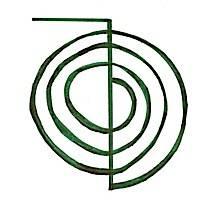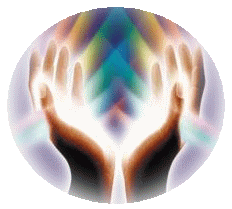reiki


Reiki is a gentle Japanese energy healing technique known for promoting deep relaxation, stress relief, and overall energetic balance. It’s a holistic therapy that continues to gain recognition among healthcare professionals around the world. Unlike traditional acupuncture, Reiki involves no needles—instead, it uses light touch or hands held just above the body to help stimulate the body’s natural healing response.
The word Reiki (pronounced Ray-Key) combines two Japanese concepts: Rei, meaning “universal or spiritual wisdom,” and Ki, meaning “life force energy.” Together, they suggest a form of healing that channels life energy guided by higher wisdom—an idea that has long existed in both healing and martial arts traditions across Asia.
Reiki is a safe, natural method of healing that can be used alone or in combination with other treatments. Its full therapeutic potential is still being explored, but it continues to prove effective in providing comfort, reducing pain, and restoring harmony to both body and mind. In fact, Reiki is now being practiced in a number of hospitals across North America.
When you arrive for a session, you’ll lie fully clothed on a treatment table in a peaceful, comfortable setting. I place my hands gently on or just above different areas of your body—moving from head to toe—in a series of standard or intuitively guided positions. There is no massage or manipulation involved.
Clients often report a range of sensations during their session: warmth, coolness, tingling, or a gentle pulsing feeling. Most people quickly enter a state of deep calm and relaxation. In some cases, physical pain may ease, and clients may feel lighter, clearer, or emotionally released.
Each experience is unique. Some people feel a powerful energetic shift, while others simply enjoy the stillness and sense of being nurtured.
Reiki is not a quick fix, and healing is not always immediate. Just as imbalances develop over time, true healing often unfolds gradually. Reiki offers a powerful tool for moving toward greater well-being—one session, one moment at a time.
After a Reiki session, it’s common to feel very calm—sometimes even “spaced out.” I recommend taking a few minutes to sit quietly, ground yourself, and sip some cool water. Becoming aware of your feet on the floor can also help you reconnect with your body.
Over the next few days, you may notice signs of detoxification as your system clears out what no longer serves it. This could include increased bathroom use, fatigue, or emotional release. Support the process by drinking more water or herbal tea, and give yourself permission to rest.
Many clients report:
Reduced pain or tension
Increased energy
Greater mental clarity
Improved mood and emotional balance
Better sleep and physical comfort
These effects may last from a few days to several weeks, depending on the individual and their needs.
To begin the healing process, I often recommend three to four sessions within a 10–14 day period. This helps to clear deep energetic blockages. After that, weekly or bi-weekly sessions may support continued improvement.
While some conditions respond quickly, long-standing issues often require five to six sessions or more. Reiki is cumulative—the more regularly you receive it, the more your system is supported in creating sustainable healing.
Reiki works in harmony with all other forms of treatment. It can complement conventional medicine, psychotherapy, physiotherapy, and other holistic modalities. I never advise clients to stop medical treatments or medications unless directed by a healthcare provider.
Reiki does not diagnose or prescribe. Rather, it offers a non-invasive, compassionate approach that supports your natural healing process—wherever it’s most needed.
Reiki can be beneficial in many different situations, including:
*Stress and anxiety relief
*Chronic pain management
*Support during illness or after surgery
*Coping with emotional trauma or grief
*Balancing energy during life transitions
*Supporting end-of-life comfort and peace
Because Reiki works with your body’s own intelligence, it can be adapted to virtually any situation, from acute emotional pain to general relaxation and self-care.
Clients who receive Reiki often describe a wide range of benefits. Through regular sessions, people have reported:
Greater sense of inner calm
Enhanced creativity and focus
Increased energy and vitality
Better emotional balance
Reduced pain and inflammation
Improved sleep quality
Relief from tension headaches or migraines
A deepened connection to self and others
These effects may begin immediately after a session and often deepen over time.
The style of Reiki I practice is based on the Usui System of Natural Healing, developed by Mikao Usui in the early 20th century in Japan. This system uses gentle, hands-on techniques to guide the flow of life force energy throughout the body. The client draws in only the amount of energy they need—Reiki energy never overwhelms or pushes.
This method is simple yet profound. You don’t need to believe in Reiki for it to work. Many first-time clients are surprised by how natural and effective the session feels—and often return again and again.
Mikao Usui experienced a spiritual awakening on Mt. Kurama near Kyoto, Japan. From that moment, he developed the Reiki method to help others heal physically and emotionally. He founded a Reiki clinic and training center in Tokyo in 1922 and taught hundreds of students during his lifetime.
Although Reiki in the West was, for many years, based on partial or unclear historical accounts, we now have access to authentic Japanese lineage and practices, thanks to open sharing between Western and Japanese practitioners in recent decades.
Reiki is not just a healing method—it’s a way of life. Mikao Usui taught five principles to support daily harmony and mindful living:
Just for today, I will not anger
Just for today, I will not worry
Just for today, I will be grateful
Just for today, I will work hard on myself
Just for today, I will be kind to others
These simple but powerful principles remind us to return to balance and compassion, one day at a time.
disclaimer: Results may vary from person to person



